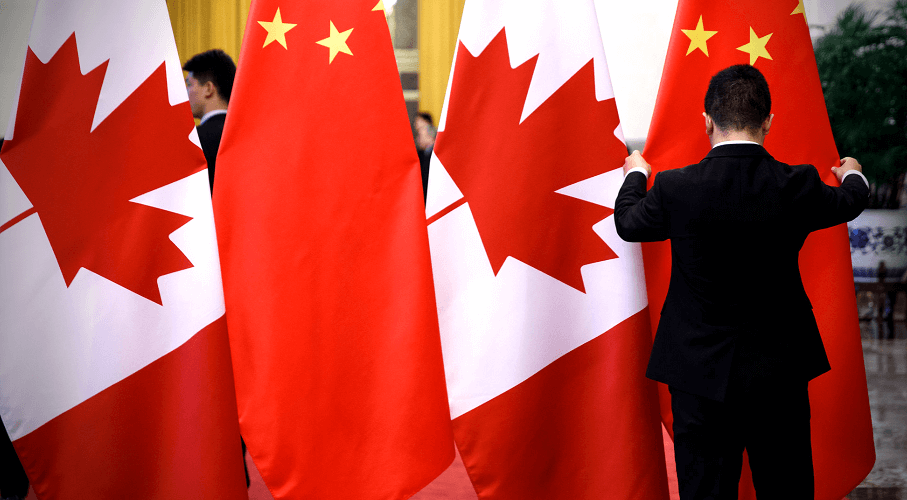This article originally appeared in the National Post.
By Christian Leuprecht, March 21, 2023
Beijing’s espionage and interference are now the single greatest threat to Canada’s democratic way of life. The People’s Republic of China (PRC) is intent on gaining control of Canadian critical minerals and is actively running influence campaigns over resource development. Balloons and election interference are merely the latest episode in a long list of hostile hybrid-warfare efforts perpetrated by the Chinese Communist Party (CCP) against Canada.
Prime Minister Justin Trudeau’s staunch refusal to convene a public inquiry is actively jeopardizing Canada’s security and its bilateral relationship with its most important strategic ally. Beijing’s corruption of Canadian business and politics poses a national security problem to the United States, in part because the U.S. shares intelligence with Canada.
Recent unclassified versions of the Canadian Security Intelligence Service’s (CSIS) annual report repeatedly warned about the state capture of Canadian political, business, financial, educational and societal elites and institutions.
Beijing invests heavily to make influential opinion leaders beholden to the PRC, who are then induced to repeat and lend credibility to the CCP’s political disinformation. I know of Canadian academics who have been offered thousands of dollars to co-publish articles with scholars from China. Others have received lucrative trips, all expenses paid by the regime in Beijing.
In the same way, the PRC pays off politicians. Since 2015, CSIS has called out select Canadian politicians by name. Australia’s experience shows that no government is immune.In 2016, Australia’s Liberal trade minister, Andrew Robb, announced that he would not run again, after having negotiated deals that were exceptionally favourable to China, including a free trade agreement. Robb then took up an $880,000-a-year job with a billionaire closely connected to the CCP and its trade policy. As trade minister, Robb had negotiated a 99-year lease for the Australian port of Darwin with that same Chinese billionaire.In 2017, Labor Sen. Sam Dastyari quit the Australian Senate over accepting donations from entities with links to the CCP. The senator had even tipped off one such donor about being the likely subject of a counter-intelligence operation.
In 2020, the founder of a Chinese-language school in Canberra made an unsuccessful run at a seat in Australia’s Senate. Turns out that he had a long history of activity with the PRC’s United Front Work Department (UFWD), which is tasked with mobilizing diaspora communities to meddle in foreign states. UFWD’s illicit activities have been called out by CSIS, the Privy Council Office and the Federal Court.
Under broad guidance from CCP’s consulates, the UFWD co-opts staff of targeted politicians, facilitates the clandestine transfer of funds, recruits potential targets, suppresses protest and supports ethnic Chinese under its influence in their election bids. The PRC maintains the second-largest diplomatic service in Canada for good reason.
Blurry lines between Beijing state organs, Asian organized crime groups, select members of Canada’s mainland Chinese immigrant community and business interests are the hallmark of the CCP’s covert, coercive and corrupt influence, which has been systematically eroding resistance to the Chinese government from within.
Suspect activities by the CCP in Canada date back at least as far as the ill-fated Project Sidewinder in the late 1990s. This joint CSIS-RCMP investigation had been looking into the way Chinese intelligence and Chinese Triads were collaborating on intelligence operations here in Canada.
A Canadian prime minister’s awareness that the fortunes of some of his party’s candidates may have been aided and abetted by the CCP is all too ironic. Out of sheer self-preservation, in any democracy, a ruling political party would have forced someone with as abysmal a record during his second term as Chinese President Xi Jinping’s to resign. Xi would never have won a free and fair democratic election for a third term.
“Misery acquaints a man with strange bedfellows,” reads the line in Shakespeare’s “The Tempest.” This refers to a man who, shipwrecked, seeks shelter beside a sleeping monster. Politics makes equally strange bedfellows, and one would hope that Canadian decision-makers finally wake up early enough to recognize the CCP for what it is.
Christian Leuprecht is author of Intelligence as Democratic Statecraft. He is a professor at the Royal Military College and Queen’s University, and a senior fellow at the Macdonald-Laurier Institute.





